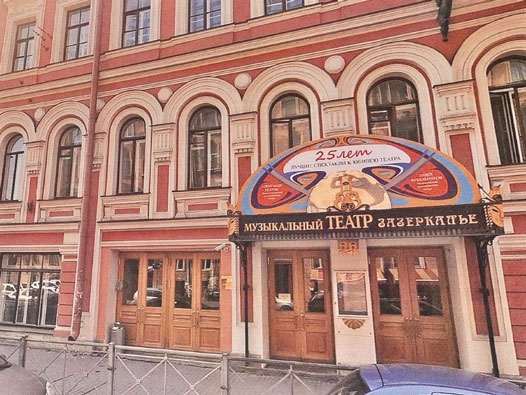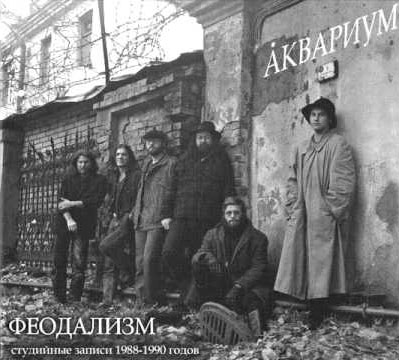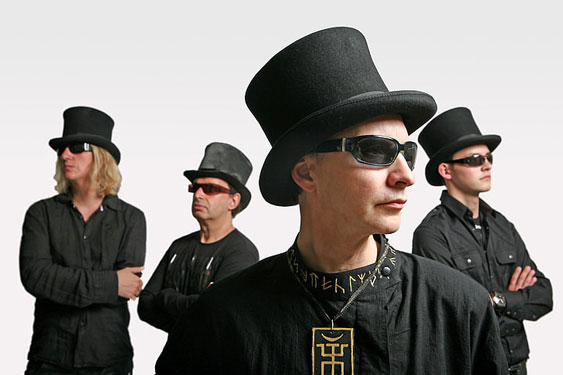LENINGRAD ROCK CLUB

Photo from Popkult.org
Back in the USSR: Where Expression Met Suppression
By Daniel Hess
(October 2021)
Think back to when you were a kid, or maybe even a young adult. Remember those times you really wanted something, but your parents would tell you no? Think about that frustration, that utter compulsion to only want something more because you can't have it.
Now, take all that energy and imagine a place where the saxophone was banned through most of the 1940s and doing the twist was seen as truly indecent. If you haven't already guessed, we are, of course, speaking of the USSR, a place where state control seemed to know no end.
However, what if through some strange crossroads of expression and oppression there was born a venue where rock music could be played and enjoyed, even under the thumb of heavy censorship? Well, in Russia in 1981, such a venue was born called The Leningrad Rock Club, and it gave birth to many eclectic, amazing Russian rock bands that may have never had a chance to perform at all otherwise.
Now, even under state rule, it is not as if rock music did not have a way to circulate. For example, on the internet these days, you may have stumbled across stories of the X-ray vinyl records from Russia, also known as Rentgenizdat. These were bootleg albums of banned artists and/or songs that would be distributed through the black market to those wanting to listen.
The first known Soviet rock group was the band Sokol, who were active from 1964 to 1969 and only had to stop performing due to lack of equipment. This was thanks (in no small part) to confiscation by the government, leading to the creation of DIY or jerry-rigged gear in order to even perform rock music in the first place by most artists.
As we continue down the road of what would eventually become the rock rebellion scene in Russia, the influence of groups like The Sex Pistols became undeniable. One of the earliest examples of this punk rock style was the group Automatic Satisfier, who embodied and embraced strong rebellious lyrics (to the dismay of the government oversight committees designed to control lyrical content in Soviet-born music).
Perhaps out of the frustration of seeing so much youth rebellion, such as riots in 1978, or the desire to look better to the world when set against the stage of the 1980 Olympic Games, the creation of The Leningrad Rock Club seemed inevitable. Let's not forget the short-lived precursor to this club, The City Experimental Club for Contemporary Youth Music Enthusiasts, which despite that catchy name may have survived longer if it weren't for the first few rock bands sparking instant concerns over lack of censorship.
So, we've had a chance to look at the history of the club, but outside of the few bands mentioned that helped shape the club, who were the artists that performed there, and what did they sound like?
Kino
Starting off the list is a heavy hitter of Russian rock music. Kino was active from 1982 to 1990, only disbanding after the passing of the lead singer, Viktor Tsoi, who was killed in a car accident in 1990. However, as recently as 2020, they made plans for a reunion tour, which has unfortunately been delayed due to the current pandemic.
The album referenced here is 45 from 1982, which features a very stripped down, almost acoustic level of production behind it. There is some additional instrumentation throughout, with some more low-key drumming and deeper string ensemble mixing. The result is almost "easy listening." Without speaking Russian, it is impossible to understand the lyrical content, but everything has a nice feeling surrounding it. It falls in line with that DIY attitude of making music beyond limitations very well, though.
Aquarium

A rock group that was originally formed in Leningrad in 1972, Aquarium is active to this day, putting out an album as recently as 2013. However, the only remaining original member is the lead singer and founder, Boris Grebenschikov.
The album being referenced here is the 1983 effort, Radio Africa. With a radio broadcast vibe, this music draws on more experimental acts such as Talking Heads. There are a lot of cacophonous soundscapes to enjoy. Some of the tracks feel akin to what a long-lost David Byrne album might have sounded like if he was left stranded in Russia for a few years.
Televizor
Another currently active band, Televizor, formed in 1984 in St. Petersburg and quickly became a mainstay at The Leningrad Rock Club. They are known for their very critical stance against Russian politics, at one time even publicly denouncing the actions of Vladimir Putin in their music.
While they have many studio albums in their home country, the catalog available in the United States is not as vast, so the compilation album Russian Legends of Rock 3, which has five tracks from the band, will serve as our point of reference.
Embodying a much more new wave/goth style, the music features heavy use of synth instrumentation. The closest adjacent group would be The Cure. The lyrics and vocals feel heavy and charged toward authority, even without knowing the direct translations.
DDT
Formed in 1980, another presently active alumni of The Leningrad Rock Club, DDT, worked their way from the underground scene to more mainstream "official" performers who were admitted to the musicians' union. They were able to take that success through to state-sanctioned music festivals as well as regular performances at the rock club.
The album referenced here is translated as Time, from 1985. From the very first track, a more laid-back, youthful energy shines through. In a setup that feels like it was recorded at a beer hall, things never feel very serious (in a good way). Not so much in the musical style, but in that spirit, there is this instant parallel energy that feels like the early work of the Beastie Boys. This very rowdy sensibility doesn't let up throughout the entire album.
Piknik

Photo from Popkult.org
Lastly, we have Piknik, a group formed in 1978 in Leningrad and still presently active. The lone remaining member from the original lineup is the lyricist and frontman, Edmund Shklyarskiy. Some would call Piknik's style a mixture of art, progressive, and psychedelic rock, with a bit of gothic styling and darker lyrics.
The album referenced here is Smoke, from 1982. There is something very fitting about finishing with this group and specifically this album. It feels like what we get from this work is the hors d'oeuvres of all the groups mentioned here. Opening up with something that sounds like a forgotten '90s Metallica record, the record sets a dark tone, but that doesn't last very long. There are strong funk tracks, deep brass instrumentation, and even some moments of power ballad bliss. The whole might not function as a sonically cohesive package, but each track feels unique on its own, making for an eclectic, if jarring, listening experience.
Closing the Curtain
Of course, this is just a small smattering of the many artists and bands that performed on stage at The Leningrad Rock Club, and the history of the venue is rich enough for a novel. Creativity never knows a boundary, and rock music is an ever-evolving genre that will always be there no matter how tastes in music change. Despite all the ways in which music and expression were oppressed in Soviet Russia, rock still flourished in a unique way, independent of all the control being squeezed around it. Perhaps there is no greater testament to the staying power of rock than being able to avoid the mighty controlling grip of Soviet Russia during the height of the Cold War.